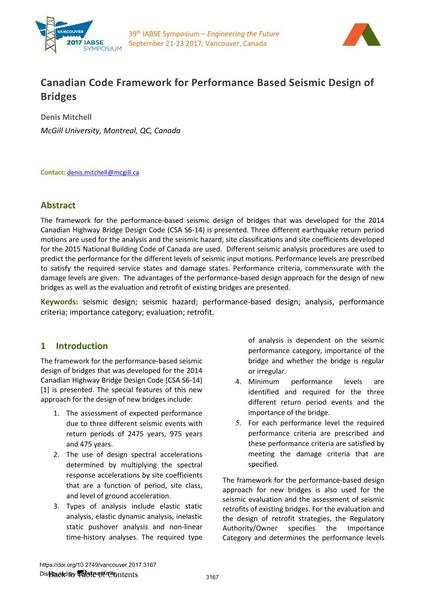Canadian Code Framework for Performance Based Seismic Design of Bridges

|
|
|||||||||||
Détails bibliographiques
| Auteur(s): |
Denis Mitchell
(McGill University, Montreal, QC, Canada)
|
||||
|---|---|---|---|---|---|
| Médium: | papier de conférence | ||||
| Langue(s): | anglais | ||||
| Conférence: | IABSE Symposium: Engineering the Future, Vancouver, Canada, 21-23 September 2017 | ||||
| Publié dans: | IABSE Symposium Vancouver 2017 | ||||
|
|||||
| Page(s): | 3167-3174 | ||||
| Nombre total de pages (du PDF): | 8 | ||||
| Année: | 2017 | ||||
| DOI: | 10.2749/vancouver.2017.3167 | ||||
| Abstrait: |
The framework for the performance-based seismic design of bridges that was developed for the 2014 Canadian Highway Bridge Design Code (CSA S6-14) is presented. Three different earthquake return period motions are used for the analysis and the seismic hazard, site classifications and site coefficients developed for the 2015 National Building Code of Canada are used. Different seismic analysis procedures are used to predict the performance for the different levels of seismic input motions. Performance levels are prescribed to satisfy the required service states and damage states. Performance criteria, commensurate with the damage levels are given. The advantages of the performance-based design approach for the design of new bridges as well as the evaluation and retrofit of existing bridges are presented. |
||||
| Mots-clé: |
conception sismique retrofit
|
||||
